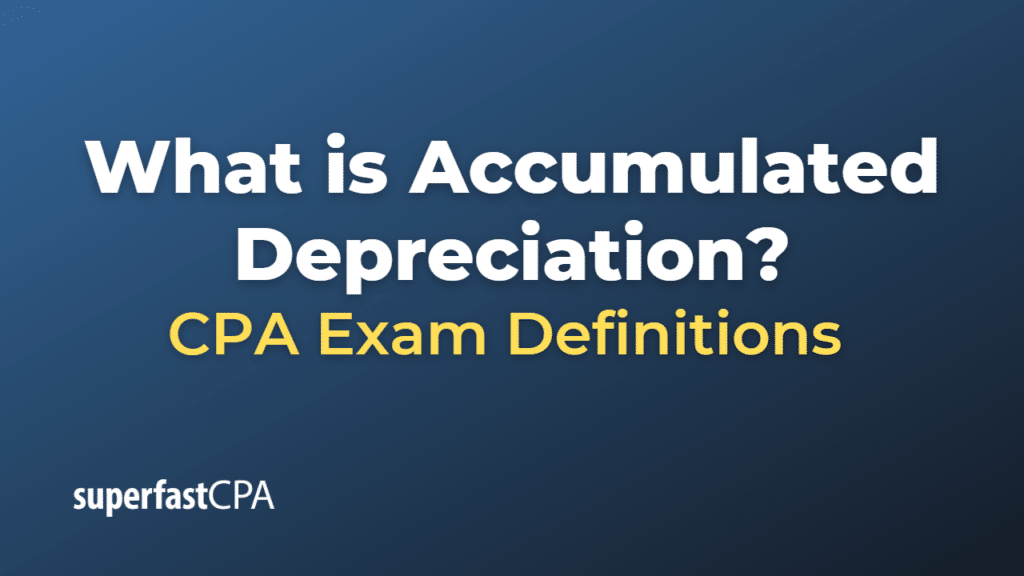Accumulated Depreciation
Accumulated depreciation is an accounting concept that represents the total amount of an asset’s cost that has been allocated as depreciation expense since the asset was acquired. Depreciation is the process of allocating the cost of a tangible asset, such as machinery, equipment, or buildings, over its useful life. Accumulated depreciation is recorded on a company’s balance sheet as a contra asset account, which reduces the value of the corresponding tangible asset.
As an asset is used over time, its value decreases due to wear and tear, obsolescence, or other factors. This decrease in value is recognized through periodic depreciation expenses. Accumulated depreciation increases over time as depreciation expenses are recorded, reflecting the reduction in the asset’s value.
Example of an Accumulated Depreciation
Here’s an example of how accumulated depreciation works:
- A company purchases a machine for $100,000 with an estimated useful life of 10 years and a salvage value of $10,000.
- Using the straight-line depreciation method, the annual depreciation expense is calculated as: ($100,000 – $10,000) / 10 years = $9,000 per year.
- At the end of the first year, the accumulated depreciation is $9,000.
- At the end of the second year, the accumulated depreciation increases to $18,000 ($9,000 from the first year + $9,000 from the second year).
On the balance sheet, the machine’s original cost of $100,000 would be listed as an asset, while the accumulated depreciation of $18,000 would be listed as a contra asset, reducing the net book value of the machine to $82,000 ($100,000 – $18,000). As the machine continues to be used and depreciated, the accumulated depreciation will increase, further reducing the net book value of the asset.













